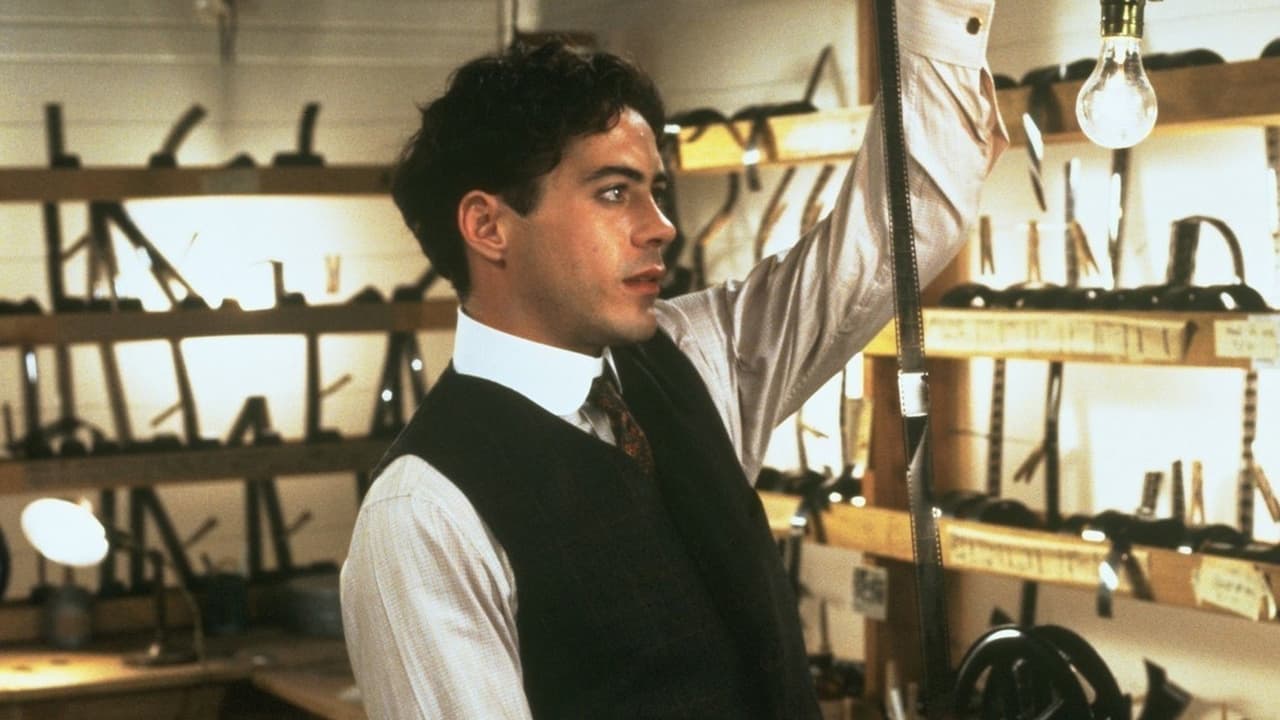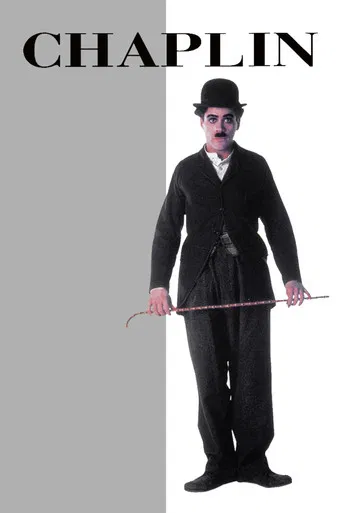

Just so...so bad
... View MoreA Disappointing Continuation
... View MoreAll of these films share one commonality, that being a kind of emotional center that humanizes a cast of monsters.
... View MoreLet me be very fair here, this is not the best movie in my opinion. But, this movie is fun, it has purpose and is very enjoyable to watch.
... View MoreBefore I watch the movie, I thought that Chaplin's life was some kind a typical Hollywood actor's life: glamorous and easy; and he was the greatest actor of the 20's. But the movie completely changed my mind; now I'm able to see the real Chaplin, the one with a troubled love life, controversy political views and a big effort to achieve what he wanted, even having serious problems in his early life. Robert Downey Jr. is in one of his greatest performances as an actor, letting the viewer sometimes immerse completely itself inside the story. The movie has lots of beautiful shots, using the maximum of the photography art as possible to connect the image with the feelings which the director is trying to transmit. The narrative of the movie that tries to let it with some kind of a explanation behind each scene, moving through the past to the future is a little annoying sometimes, but it can't take the credit of the movie that tries to do a Chaplin's narrative-biography.I strongly recommend to watch, if you don't like Charles Chaplin's work, you might be interested in see what is his real history and the wonderful performances of the film.
... View MoreHonestly before I watched Chaplin I didn't know much, all I knew was that he was a very popular actor who wore a black hat and had a cane. However, after watching the film I learned that when he was only 14 he put his mother in an asylum and after that began his career in a vaudeville theatre. after he travelled to America and was then hired in movie theatre where he was limited to what he wanted to do. I found it really amazing how he started his own film studio and started making films of his own and when sound came into the world he resisted because he thought the films were more realistic and didn't want to force sound into them because they would lose their simple comedy. I also learned that when he left America for a holiday he was banned and wasn't allowed to return.I think Charlie Chaplin is still famous today because as a film director in the 1900s he was always extremely focused on what he wanted to film and how he wanted to film it and didn't let others change the way he wanted to do things.Personally I loved the film and especially the way it was filmed, the way they went through his childhood was perfect and I never got tired or bored of it. I was constantly attached to it and i think Robert Downey Jr. was perfect for the role with his somewhat sarcastic attitude.
... View MoreBefore seeing this movie i didn't know much about Charlie Chaplin. I knew that he is a famous actor in silent film, and in particular in comedy,I knew that he always wore a black top hat and long black jacket, and that he was born in England. After viewing the movie I learn that his life wasn't good,I mean his childhood was sad and unhappy, but he was always smiling and happy. The thing that struck me the most is that he had the best timing in film, but the worse timing in life. he liked younger girls and often they weren't really good people. He married different girls but only the last one, Oona O'Neill, took care of him for a long time. I really liked this film because I've learned a lot of things about Chaplin and I really appreciate it.
... View MoreI won't review the movie itself, as many people have done so and I do believe Robert Downey's performance as Charlot was very good as well as some of his support actors.I want to talk about the old Charles Chaplin's make-up. One thing that Hollywood can't get right yet is that of aging an actor. No matter how many make up techniques they use, how much experience make-up artists have, aging an actor is a real feat for them. Why can't they just find a look-alike actor around the same age of the character instead of making one look like a fake human?In this case, when Charlie is at his Switzerland house being interviewed by Hopkin's character, his face instead of looking 'aged' looks more like as if he's had a fire accident and his features are the result of a bad burning and a myriad of surgeries where he lost most of his hair and his eyebrows.To make matters worse, when he's waiting on his wheelchair awaiting for his academy award, his face looks like it is the result of a real bad face transplant, the shape of his eyes look weird, his lips look very stiff and badly shaped and his skin looks very waxy and and like it's melting with the lights. To be honest it reminded me a lot the face of the Phantom of the Opera of 1925. It's almost unbearable to watch and spoils the film's great performances.Now, for some reason, when Robert Downey Jr. had this make up on, his performance was very wrong (besides being a 20-ish years old playing a non believable 60-something years old man), a thumbs down for the great Richard Attenborough. But when you watch footage of interviews of Chaplin at this age (60s), he was really such a sweetheart, very kind, still funny and very smiley. Downey's Old Chaplin looks sad, dark, depressed, boring, dry, uninteresting, and of course he looks like anybody else but not like the great Charles Chaplin when old.
... View More